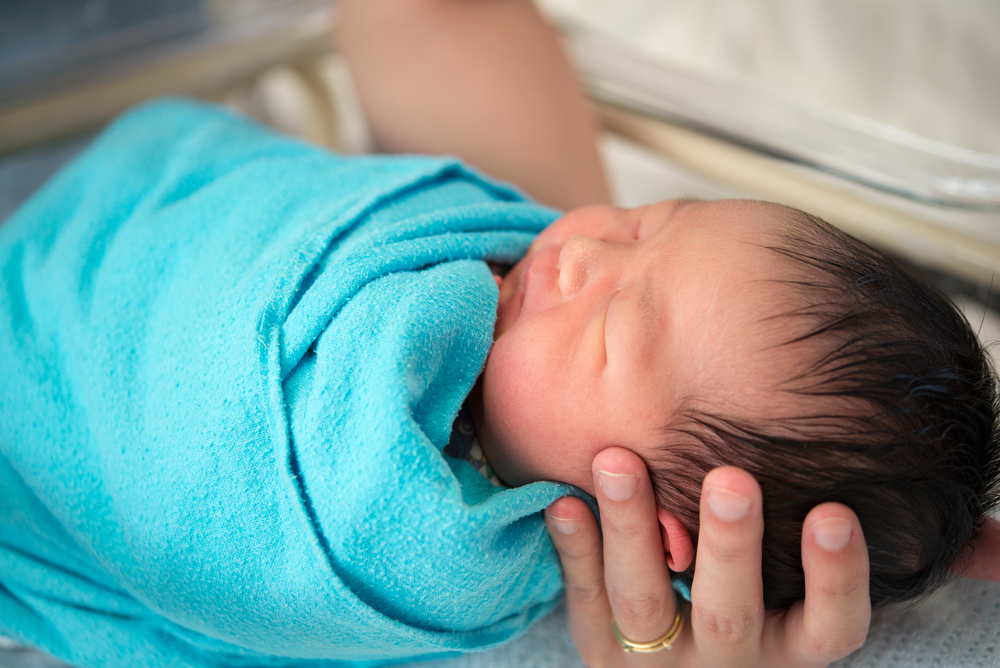When you’re a first-time mom, it can feel like you don’t know enough about taking care of your baby. Newborns seem so tiny and fragile that, at first, carrying and passing the baby to your husband can leave us holding our breath until we’re sure we’ve done it right. The prospect of giving a newborn a bath can make us all the more nervous. There’s much to learn about our baby’s skin and we can use all the information we can get.
Dra. Gisella Umali Adasa, head of the Pediatric Dermatology Unit of the Research Institute for Tropical Medicine, gave tips on taking care of your newborn’s delicate skin. Baby skin is very different from our skin. It is 40 to 60% thinner than adult skin, has faster water loss (up to five times faster) than adults, and is more permeable to fat-soluble substances. All these mean that babies have a greater chance of exposure to cold and draft, and that their skin is prone to dryness.
Moms seem to keep second-guessing themselves despite all our research. We need to know that it’s all part of the motherhood journey. And no matter where you are, your way is the best way for your precious one.
Bath time and skin care make a small part of a mother and child’s unbreakable connection. Not only is bathing an opportunity for cuddles and bonding, it helps you stay in-tune to your child’s skin and notice any changes early on.
Here are ten ways you can improve your baby’s skin care and bathing routine:
Skin Care Tips
1. Although your baby’s skin doesn’t get so dirty yet, you do need to bathe him or her at least once a day to remove bacteria, fungi, and viruses from the skin. There’s no maximum number of times you can bathe your baby, but Dra. Adasa reminds us not to bathe too often or you risk drying your baby’s skin.
2. Most parents wonder, when is the best time to bathe your baby? Should it be in the morning, afternoon, or night? Dra. Adasa says that anytime would do, depending on your routine. But consider the temperature! Baby’s thin and delicate skin is prone to hypothermia. Make sure room and water temperature are both nice and warm to protect baby from chills.
3. When selecting cleansers, the milder, the better. Basically, anything with fragrance, color, and far from the natural PH of the skin is not a good choice. Avoid bubble baths and fragrant soaps since they’ve been proven to cause irritation. Bubble bath for infants have also been linked to urinary tract infections.
4. There’s a correct way to moisturize effectively. Pat the skin dry with a towel, and while it’s still moist, apply the moisturizer. Read the labels and choose a brand with little or no preservatives or fragrances.
5. Since baby’s skin is so delicate, put some thought into your laundry detergent. Choosing a natural and simple baby-safe detergent will clean clothes while staying gentle on your sweet one’s skin. Expose baby’s skin to as little chemicals as possible.
Bathing Essentials
1. Lose all distractions and set aside enough time for baby’s bath. Never ever leave baby in the tub unattended. Anything can happen over a few seconds.
2. Before bathing, test water temperature with your elbow or the back of your hand. There are lots of nerve endings in these body parts.
3. When bathing, start with the head and work your way down to the body. Make sure to clean the inguinal area, underarms, and other places where libag can accumulate.
4. While washing the scalp, the football hold is advised. While you support the neck, you can use your fingers to cover baby’s ears. Keeping water away from the eyes and ears will help reduce the risk of irritation or infection.
5. For baby’s face, you don’t need to use sponges or loofahs. Use your hand and gently wash.
Bath time and skin care make a small part of a mother and child’s unbreakable connection. Not only is bathing an opportunity for cuddles and bonding, it helps you stay in-tune to your child’s skin and notice any changes early on. Dra. Adasa encourages parents not to delegate this important task, no matter how convenient it may seem.
In the end, there are no hard-set rules on taking care of your baby. You have to trust yourself and believe in your own way because we all know you’ve got your baby’s best interest at heart.



